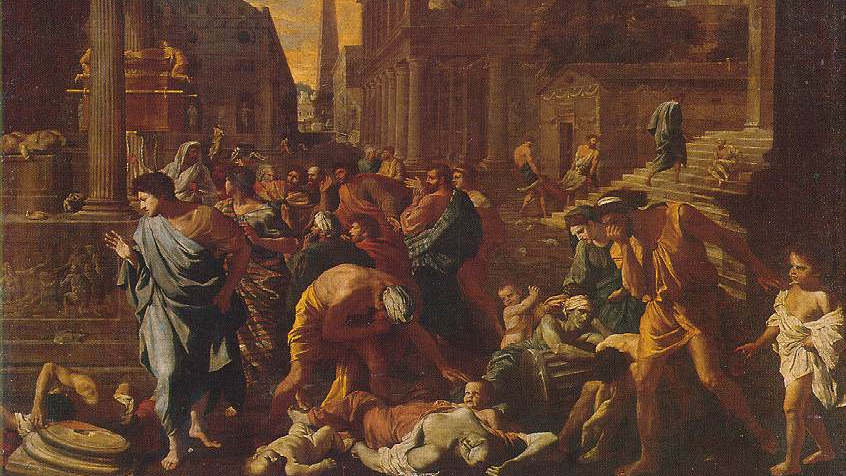In the 3rd century AD, a horrible plague struck the Roman Empire. According to some counts, 5,000 people a day were dying in Rome. It is not clear what specific disease caused the pandemic, but it is clear it was severe and deadly, lasting not months but years.
By the mid-200s AD, when this plague struck, Christianity had grown substantially. In fact, it is largely thanks to Christian accounts of the plague that we know how events unfolded during the pandemic. But these Christian accounts also shed valuable light on how the church responded. Among those who wrote about the plague was a bishop by the name of Dionysius. Here is part of what he shared in a letter, quoted from “The Rise of Christianity” by Rodney Stark (p.76ff).
“Most of our brother Christians showed unbounded love and loyalty, never sparing themselves and thinking only of one another. Heedless of danger, they took charge of the sick, attending to their every need and ministering to them in Christ, and with them departed this life serenely happy; for they were infected by others with the disease, drawing on themselves the sickness of their neighbors and cheerfully accepting their pains. Many, in nursing and curing others, transferred their death to themselves and died in their stead . . . The best of our brothers lost their lives in this manner, a number of presbyters, deacons, and laymen winning high commendation so that death in this form, the result of great piety and strong faith, seems in every way the equal of martyrdom.”
In contrast, he compared the reaction of the non-Christians of the day, saying,
“The heathen behaved in the very opposite way. At the first onset of the disease, they pushed the sufferers away and fled from their dearest, throwing them into the roads before they were dead and treated unburied corpses as dirt, hoping thereby to avert the spread and contagion of the fatal disease…”
The courage and sacrificial love of these early Christians is beautiful and inspiring. It’s hard to imagine being in such a perilous situation, but I wonder how the church would respond today. With the spread of the current coronavirus, perhaps we can get something of a picture.
Yet, our situation today is vastly different from the scene described by Dionysius and others. In most countries, the sick will not be kicked to the streets. Thanks to modern medicine, we can care for the sick and cure many cases. Simple hand washing and basic medical gear provide great protection against the spread of the virus. And, since most Christians are not medical doctors, there is little we can do to directly care for the ill, unlike our brothers and sisters in the 3rd century.
Nevertheless, the situation is serious, and the question remains: what can the modern church do? How can we respond to the situation in a way that shows our faithfulness to God and love for our neighbor? In short, what can we do to look more like Jesus in our modern context?
I’ve been chewing on this and listening to reflections of some others, and I think there are a few points worth sharing.
First, of course, is to be faithful in prayer. The world may find this laughable. As Rev. Randolph H. McKim said during the 1918 influenza “that prayer had any efficacy in the physical world was an idea that was given no hospitality” by some of those in charge (Caleb Morell, “How DC Churches Responded“). But for Christians, we know that God answers prayer. We have his promises in scripture, and we have experience to back it up. Do not think that God won’t listen to our prayers. Our faithfulness in prayer makes a difference.
Second, we should remember that part of loving our neighbors means not infecting them with diseases. That means we have to make decisions that we may not like, but are prudent at times like this. In the previously linked article by Caleb Morell, he mentions how DC churches stopped meeting in their typical buildings, and eventually they halted collective assemblies altogether for a time to help prevent the spread. That may be prudent in some cases. At the very least, following instructions by health professionals like washing hands regularly and thoroughly, practicing social distancing, and other such measures are appropriate. Again, this is part of how we love both our brothers and sisters, and our community at large.
Third, we should find ways to serve those who we can. If we are young and healthy, we may be able to go shopping for the elderly or sick in our church and community, so they don’t have to. We can share what supplies we have, such as extra hand sanitizer or toilet paper. We can donate money or goods to local food pantries, or make sure we are well stocked if we have one ourselves, as the economic tolls can be greatest on the poor. We can avoid panic and display the fruits of the Spirit, which can be an important means of sharing hope with a world in fear. These kinds of things matter deeply at times like this.
We would do well to remember that we are not the first Christians to go through trying times. And we will not be the last. As the people of Dionysius’ time walked faithfully in the midst of a plague and so left a legacy for us today, may we leave a legacy of faithful service and Christ-like love for those after us.
[Image: “The Plague At Ashdod,” Wikipedia Commons]






